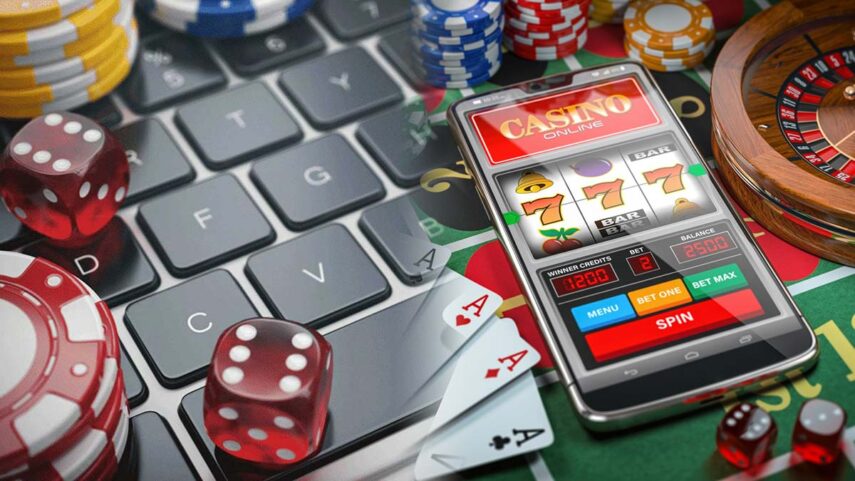Remakes are all the rage in the gaming sphere, so much so that they have become a point of contention for gamers. While some fans do not mind playing the same game all over again with improved graphics, others paint remakes as blatant cash-grabby attempts at engineering artificial hype among the gaming community.
Studios and publishers are not blind to these controversies. But many claim that remaking a game can effectively appeal to new players without undermining the original experience. Undeniably, the critical and commercial success of recent remakes like Resident Evil 4 and Dead Space has driven their point home.
So, are remakes really the future of the video gaming industry? Let’s delve into this prevalent trend.
A Trend Rooted in Gaming History

Video game remakes go a much longer way than what most players would believe. The 1980s already saw a string of studios rework popular titles from the past, such as Automated Simulations remaking the 1979 dungeon-crawler Temple of Apshai as part of the 1985 Temple of Apshai Trilogy.
Apart from such early computer RPGs, gaming giants like Nintendo revamped some of the levels of Super Mario All-Stars in 16-bit graphics in the 90s. The trend continued in the 2000s, growing ever stronger with massive hits like Counter-Strike: Source and the Metroid Prime Trilogy.
However, it was arguably The Legend of Zelda: Ocarina of Time 3D that showed remakes could be more than shallow releases from publishers running out of new ideas. Launched in 2011 as a remaster of the Nintendo 64 original from 1998, this Nintendo DS title improved on many visual aspects of its predecessor.
Besides updated graphics, the game introduced fresh gameplay elements like stereoscopic 3D effects, mirrored versions of past dungeons, and video clips serving as hints for the game’s numerous puzzles. This modernized Zelda adventure would go on to be considered one of the best remakes ever. That said, not all remakes were treated so kindly.
A Genre Prone to Controversy
Remakes have been commonplace from the 80s to this day. The genre was never immune to controversy, however. Studios’ propensity to make a quick buck out of beloved retro titles resulted in many a half-baked remake that angered fans.
Whether they lacked the charm of the original or featured botched motion controls or AI, some remakes fumbled the bag. Strangely enough, even those publishers which had previously found a winning formula failed to hit the mark again on subsequent tries.
Despite hitting a bullseye with the atmospheric remake of Resident Evil 2, Capcom came up with a fairly disappointing remake of Resident Evil 3 missing several key locations and enemies.
Other remakes appeared plain uncalled for. Last year, Naughty Dog’s announcement of a Last of Us remake sparked widespread criticism, notably because of its hefty $70 price tag. Deemed unnecessary by as many fans as reviewers, The Last of Us Part I seemed to fit the bill of a proper money grab for the most cynical gamers out there. However, this new addition to the PC and PS5 rosters ultimately won critics over for its splendid graphical enhancements and added accessibility.
A Direction that Might Well Be Beneficial to The Industry

Remakes are inherently divisive, especially when they apply to games that are barely a decade old. Their recent abundance has done nothing to sway gamers pointing the finger at studios for rehashing old ideas without taking any creative risk. As contentious as it may be, though, this nostalgia-filled trend isn’t all black and white.
In truth, lashing out at studios for taking advantage of technological advances to remarket classic games is naïve at best and counter-productive at worst. Granted, rereleasing a game is a sure-proof way to make money for any publisher.
But as money makes the world go round, these gains are often leveraged to fund the development of innovative titles. As costs skyrocket across the industry, taking a leap of faith with experimental ideas requires the financial backing that remakes usually guarantee.
Additionally, remakes can actively break new ground for both developers and gamers. While unimaginative at first glance, countless remakes help studios infuse bold new ideas into a franchise.
For instance, many of the most popular gameplay mechanics of the Resident Evil series originally came from remakes. Whereas drastic changes to the formula could potentially dampen the appeal of a brand-new sequel, their being introduced in a remake is a much safer option to work around not to upset diehard fans, while also catering to new players.
A Means to Breathe New Life Into Established Franchises

Remaking a past game is incredibly effective at drawing in new audiences. Long-running series like Final Fantasy or Like a Dragon have put this concept to good use through remakes acting as solid introductions for newcomers.
Yakuza Kiwami demonstrably played an instrumental role in popularizing its franchise outside of Japan, whose newfound success led to the Japan-exclusive spin-off Like a Dragon Ishin! receiving an unexpected global release.
True to the mobster saga’s formula, this historical tale hooked fans with its samurai-styled combat and wacky minigames like chicken racing and gambling. For all their fun, Ishin’s card games may be underwhelming for seasoned players.
If so, websites like VegasSlotsOnline offer much more in the way of casino gaming. From roulette to blackjack, top tabletop classics are accessible with just a click. Thousands of free machine slots also await on desktop computers and mobile devices.
Gamers with a thing for the gangster genre might even strike it lucky with pokies like FUGASO’s Yakuza and Urgent Games’ Yakuza Slots before getting their hands on the eighth mainline installation in the Like a Dragon series dropping next January, whose international release may not have been secured if not for the strong sales of previous remakes.
Final Thoughts
Are remakes cash cows or innovative new takes on past classics? This burning question doesn’t have a clear-cut answer. Regardless of personal preferences, remakes are assuredly a force to be reckoned with in the industry.
From Final Fantasy 7 Rebirth to Super Mario RPG, many upcoming titles will be updates of retro classics with modern fidelity. If done with reverence to the source material, reinventing a past game can prove just as valuable as rolling out risky new ideas.







